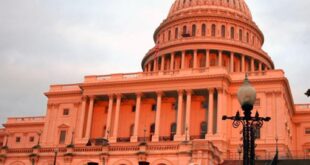LONDON (Reuters) — A Palestinian official said on Sunday missing BBC Gaza correspondent Alan Johnston was alive and well and he hoped he would be released soon.
Johnston, 44, disappeared on March 12 while driving in Gaza.
Ghazi Hamad, spokesman for the Palestinian Cabinet, told Sky News he could confirm Johnston was alive and being held captive.
The Palestinian government had made great efforts to get him released, Hamad said at a book festival in the British town of Hay-on-Wye. “We have different channels, different contacts to reach these people and I am sure that he is well and he is healthy,†he said.
“We are still continuing our effort to release him and I hope in a very, very close time we can do it.†Hamad said the people holding Johnston had some “political demands†which he did not specify. “I think sooner or later Alan Johnston will be released,†he added.
A little-known Islamist group claimed responsibility in an audio recording on May 9 for abducting Johnston.
“We demand that Britain free our prisoners, particularly the honourable Sheikh Abu Qatada al Filistini,†said a speaker on the recording, posted on the Internet by a group calling itself “Jaysh al Islamâ€, or Army of Islam.
The authenticity of the tape could not be verified.
Abu Qatada, a radical Islamic cleric suspected of close links to Al Qaeda, has been described by the British government as a “significant international terroristâ€.
He is one of more than a dozen Arab men whom Britain has been holding under detention or house arrest as threats to national security, while acknowledging that it does not have sufficient evidence to put them on trial.
A Foreign Office spokesman had no comment on Hamad’s statement. Commenting on the presence in Britain of Hamad, a member of Hamas, he said there had been no change in British policy towards the Islamist group. “We don’t engage with Hamas officals on policy discussions,†he said.
While he could not comment on a particular case, he said visa applications were dealt with on a case-by-case basis and applications were assessed against strict criteria.
One criterion was that there should be no indication the applicant had been involved in or supported violence, he said.
The Middle East peace Quartet — the European Union, the United States, the United Nations and Russia — cut off direct aid to the Palestinian Authority last year after Hamas came to power and refused to recognise Israel’s right to exist.
The EU eased its boycott after a Palestinian unity government was formed in March and has talked to non-Hamas ministers.Š
 Eurasia Press & News
Eurasia Press & News



